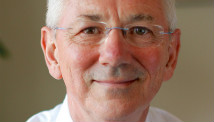SEOUL (Reuters) - North Korea threatened to attack rival South Korea if Seoul joined a new round of tightened U.N. sanctions, as Washington unveiled more of its own economic restrictions following Pyongyang's rocket launch last month.
In a third straight day of fiery rhetoric, the North directed its verbal onslaught at its neighbor on Friday, saying: "'Sanctions' mean a war and a declaration of war against us."
The reclusive North has this week declared a boycott of all dialogue aimed at ending its nuclear program and vowed to conduct more rocket and nuclear tests after the U.N. Security Council censured it for a December long-range missile launch.
"If the puppet group of traitors takes a direct part in the U.N. 'sanctions,' the DPRK will take strong physical counter-measures against it," the North's Committee for the Peaceful Reunification of Korea said, referring to the South.
The committee is the North's front for dealings with the South. DPRK is short for the North's official name, the Democratic People's Republic of Korea.
The U.N. Security Council unanimously condemned North Korea's December rocket launch on Tuesday and expanded existing U.N. sanctions.
On Thursday, the United States slapped economic sanctions on two North Korean bank officials and a Hong Kong trading company that it accused of supporting Pyongyang's proliferation of weapons of mass destruction.
The company, Leader (Hong Kong) International Trading Ltd, was separately blacklisted by the United Nations on Wednesday.
Seoul has said it will look at whether there are any further sanctions that it can implement alongside the United States, but said the focus for now is to follow Security Council resolutions.
The resolution said the council "deplores the violations" by North Korea of its previous resolutions, which banned Pyongyang from conducting further ballistic missile and nuclear tests and from importing materials and technology for those programs. It does not impose new sanctions on Pyongyang.
The United States had wanted to punish North Korea for the rocket launch with a Security Council resolution that imposed entirely new sanctions against Pyongyang, but Beijing rejected that option. China agreed to U.N. sanctions against Pyongyang after North Korea's 2006 and 2009 nuclear tests.
NUCLEAR TEST WORRY
North Korea's rhetoric this week amounted to some of the angriest outbursts against the outside world coming under the leadership of Kim Jong-un, who took over after the death of his father Kim Jong-il in late 2011.
On Thursday, the North said it would carry out further rocket launches and a nuclear test, directing its ire at the United States, a country it called its "sworn enemy".
U.S. Defense Secretary Leon Panetta said the comments were worrying.
"We are very concerned with North Korea's continuing provocative behavior," he said at a Pentagon news conference.
"We are fully prepared ... to deal with any kind of provocation from the North Koreans. But I hope in the end that they determine that it is better to make a choice to become part of the international family."
North Korea is not believed to have the technology to deliver a nuclear warhead capable of hitting the continental United States, although its December launch showed it had the capacity to deliver a rocket that could travel 10,000 km (6,200 miles), potentially putting San Francisco in range, according to an intelligence assessment by South Korea.
South Korea and others who have been closely observing activities at the North's known nuclear test grounds believe Pyongyang is technically ready to go ahead with its third atomic test and awaiting the political decision of its leader.
The North's committee also declared on Friday that a landmark agreement it signed with the South in 1992 on eliminating nuclear weapons from the Korean peninsula was invalid, repeating its long-standing accusation that Seoul was colluding with Washington.
The foreign ministry of China, the North's sole remaining major diplomatic and economic benefactor, repeated its call for calm on the Korean peninsula at its daily briefing on Friday.
"The current situation on the Korea peninsula is complicated and sensitive," spokesman Hong Lei said.
"We hope all relevant parties can see the big picture, maintain calm and restraint, further maintain contact and dialogue, and improve relations, while not taking actions to further complicate and escalate the situation," Hong said.
But unusually prickly comments in Chinese state media on Friday hinted at Beijing's exasperation.
"It seems that North Korea does not appreciate China's efforts," said the Global Times in an editorial, a sister publication of the official People's Daily.
"Just let North Korea be 'angry' ... China hopes for a stable peninsula, but it's not the end of the world if there's trouble there. This should be the baseline of China's position."
(Additional reporting by Michael Martina in Beijing; editing by Jeremy Laurence and Raju Gopalakrishnan)


